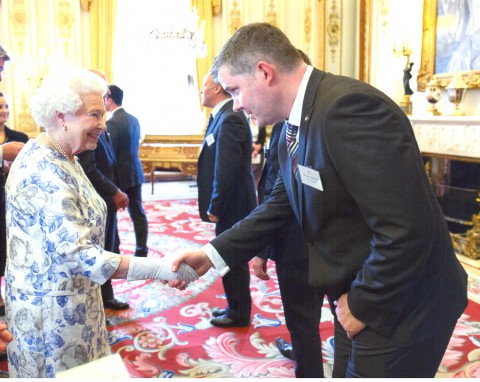From Slugger O’Toole It seems we in Northern Ireland aren’t doing so well when it comes to innovation, at least according to InterTrade Ireland. Simon Hamilton tweeted this announcement from one of his fellow ministers yesterday: “Arlene Foster reveals only 1 of 18 nominations in InterTradeIreland awards from NI & this is a trend. Does … Continue reading “Innovation Island?”
From Slugger O’Toole
It seems we in Northern Ireland aren’t doing so well when it comes to innovation, at least according to InterTrade Ireland. Simon Hamilton tweeted this announcement from one of his fellow ministers yesterday:
“Arlene Foster reveals only 1 of 18 nominations in InterTradeIreland awards from NI & this is a trend. Does ROI have monopoly on innovation?”
I do wonder what “innovation” has to do being represented in an awards show. Does a panel from IntertradeIreland actively search for innovation and inspiration or is this yet another nomination exercise? Someone, maybe even the MD of the business, fills in a form, tells a story and enters a dog’n’pony show?
And shame on our ministers for making a big deal of it. Obviously we’d all love to win an award, parade around with a few suits, have my picture taken (obviously proffering an iPad or laptop towards the camera) and get our pictures into a local advertising aggregator web site. That would be a real measure of innovation in our region.
According to the Technology Strategy Board, Northern Ireland companies do not respond to their competitions as much as they should (based on population). NESTA say that Northern Ireland has a poor rate of response to their programmes. Channel 4 “4IP” told me that they got very few applications from Northern Ireland, much lower than expected. Is it just that we don’t play well with others?
Looking south of the border, they have their own sovereign nation which is an advantage as they have their own controls over corporation tax and other economic drivers. While they were holding out their hands to Europe for a national bailout, they were spending like mad to encourage enterprise. They realised that you have to invest your way out of a recession. We initiate a game development pilot, they copy it but boost the numbers by 10. We have been arguing for a publicly supported incubator, they have about ten of them. We’re playing catchup, yes, but it’s not the private sector who needs to wake up and smell the coffee.
All my life has been in a divided nation. As a vaguely union-supporting post-graduate professional from a middle class catholic background, I have very little national identity of any form and quite literally I am not involved in the politics of the region; I have not voted in years. I feel no loyalty to our political parties because I don’t feel like any of them have any loyalty to me.
Northern Ireland is the most isolated region in the British Isles. We’re the only region of the UK which shares a land border with another sovereign nation; a nation which uses a different currency, offers extremely competitive corporation tax rates and didn’t really suffer thirty years of civil war. We’re separated from the rest of the UK by one of the most expensive stretches of water in the world and due to decades of mismanagement, our pointless little country can only survive in handouts from the UK government. When the block grant goes (and it will), we will have to deal with some very hard questions. Either that or revitalise our previously successful crime and terrorism industry.
It aggravates me when Invest Northern Ireland hands back £50m of their budget to the DFP and blames the private sector for not investing. It makes me ask questions about their ability to forecast when a third of their budget goes unspent. It makes me wonder if they are even aware of recession economics – most businesses I talk to are unable to spend days filling out forms for grants because they are paying the bills and when they’re not working their butts off to pay the bills, they’re trying to build the next big thing on their own time; time, according to Invest Northern Ireland, is worthless.
I have started three businesses in Northern Ireland and I am currently working on starting my fourth. I have never taken a single penny of grant aid from Invest Northern Ireland. The job I’m currently doing means I am supping from the public teat and it can be argued whether or not I would be better off doing my own thing or continuing in this line. I feel that I signed up to a duty of care for the digital sector in Northern Ireland when I took this job and right now I wonder whether I’ve taken on too much responsibility and whether I care too much about the outcomes. Being part of the process of helping our startups has somewhat overtaken my life.
So, in short, no, obviously, the ROI does not have a monopoly on innovation. And yes, our programmes in place are not adequately supporting our startups. And no, it’s not the startups fault.
